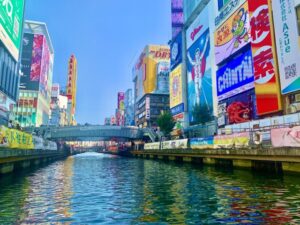The verb conjugation are summarized in the table.
Six conjugated forms of verbs
Varying the ending of “書く write” would look like this
Predicate: 書かない not to write
Adjuncts: 書きます write、書いた wrote
Ending form: 書く write
Adnominal form: 書くとき when writing
Hypothetical form: 書けば If you write
Imperative form: 書け Write
Varying the ending of “起きる wake up” would look like this
Preemptive form: 〜ない、〜う、ように連なる形 as in linked form (起きない) (does not wake up)
Adjunctive form: 〜ます、〜たに連なる形 in succession to ~ta (起きた、起きます) (woke up, waking up)
Ending form: 言い切る形 to say off( 起きる) (wake up)
Adnominal form: 〜ときなどの体言に連なる形a form linked to a nominal word such as “when” (起きるとき) (when you get up)
Hypothetical form: 〜ばに連なる形 (起きれば) (if you get up,)
Imperative form: 命令の意味で言い切る形(起きろ) a form of saying off in the sense of a command (Wake up)
If you have any questions, ask them for free! ➡ Japanese Question Form
KEY:
Verbs can be conjugated into six different forms depending on the trailing words: preverb, conjugative, terminative, conjugative, hypothetical, and imperative.
動詞は、末尾の単語によって、前置詞、連用形、終止形、連用形、仮定形、命令形の6種類の形に活用できます。

Our mission
Our mission is to arrange Japanese language partners for every foreigner who comes to Japan, allowing them to learn Japanese whenever and wherever they want with ultimate flexibility.
As a result, we not only relieve everyone of their language difficulties but also unleash their potential for success in life.

Tokyo vs. Osaka: Which is Better for Foreign Residents in Japan?
Japan is home to several major cities, known collectively as the “Big Five Cities” which include Tokyo, Osaka, Nagoya, Sapporo,

Guide to Side Jobs for Foreigners in Japan
Since 2023, price increases in Japan have become more noticeable, and many people are feeling that their salary from the

Essential Interview Tips for Success at Japanese Companies
There may be some foreigners who are looking for a job in Japan, but in fact, many of those foreign

Tokyo vs. Osaka: Which is Better for Foreign Residents in Japan?
Japan is home to several major cities, known collectively as the “Big Five Cities” which include Tokyo, Osaka, Nagoya, Sapporo,






